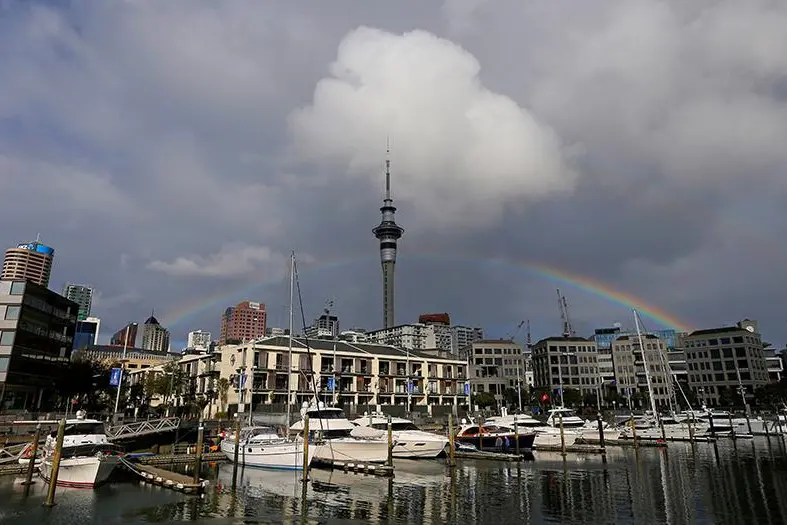PHOTO
Political newcomer and former businessman Christopher Luxon, front-runner to become New Zealand's prime minister, aims to focus on inflation as he seeks to unseat a Labour Party that has held power for nearly six years.
Luxon, credited with producing consistent profits as chief executive of Air New Zealand, told Reuters on Thursday that cost of living was his centre-right National Party's priority in the campaign for an Oct. 14 general election.
"Our number one task is to get inflation under control," he said in an interview, adding that half the nation's 5.1 million people worry about money daily and that parents "are skipping meals because they can't afford food" for their families.
The 53-year-old millionaire entered the political scene three years ago as part of an opposition party pulverised by Labour under the charismatic Jacinda Ardern, a rare globally known New Zealander.
But Labour's allure with a popular leader and a progressive democratic message has faded as Ardern stepped down in January, the agriculture-dependent economy has stuttered and inflation has been stuck near three-decade highs.
National portrays itself as the party to get the economy moving and halve inflation to below 3%.
"We've actually got to grow the economy," Luxon said. "On inflation, we've got to stop passing costs on to businesses that lead to higher prices, we need to make sure we're freeing up immigration settings, getting rid of red tape and stopping our businesses from growing."
The economy is the key battleground for the election as National and Labour are strongly aligned on foreign policy in the pro-Western U.S. ally in the Pacific. Luxon predicted no significant changes to New Zealand's diplomacy if his party takes power.
National pledges to reduce taxes, cut government debt, boost childcare and narrow the central bank's mandate to targeting 1%-3% inflation, removing employment and housing goals. The agenda includes going hard on crime and pushing back on a scheme to reduce agricultural emissions of greenhouse gases.
DELICATE CHINA STANCE
Although Luxon slightly trails Ardern's successor, Prime Minister Chris Hipkins, in popularity, National leads Labour 37% to 29% in the latest opinion poll, which forecasts National will topple Labour's coalition and lead the next government.
Labour is also campaigning on helping people struggling with higher costs. But in addition to Ardern's departure and the economy's problems, Hipkins' government has been beset by scandals that have driven three cabinet ministers from office.
Luxon, who has backed a popular, high-profile policy of banning cellphones in schools, has faced most criticism for his views on social issues in socially liberal New Zealand.
He opposes euthanasia and abortion, both liberalised under Ardern, and must defend his Christian faith in a country where almost half the population say they have no religion.
Also complicating National's hopes is its delicate stance toward China, as the party's largely rural constituency relies on the vast Chinese market for its mainstay exports of milk, lumber and sheep meat.
New Zealand and larger neighbour Australia must contend with a China that is becoming increasingly assertive in challenging the U.S. for influence in the Pacific. Successive governments in Wellington have also criticised Beijing over human rights.
"With respect to China, it's a longstanding relationship with mutual respect," Luxon said. "As a country it's a relationship that we have areas of collaboration and cooperation, and we also have areas of difference. And we're not afraid to say so."
He said a National-led government would aim to roughly double military spending to 2% of gross domestic product but that government debt would be a challenge.
"Our intention would be to, over time, make sure that we continue to make strong, steady, consistent investments in our defence capabilities," Luxon said. (Reporting by Lucy Craymer; Editing by William Mallard)





















